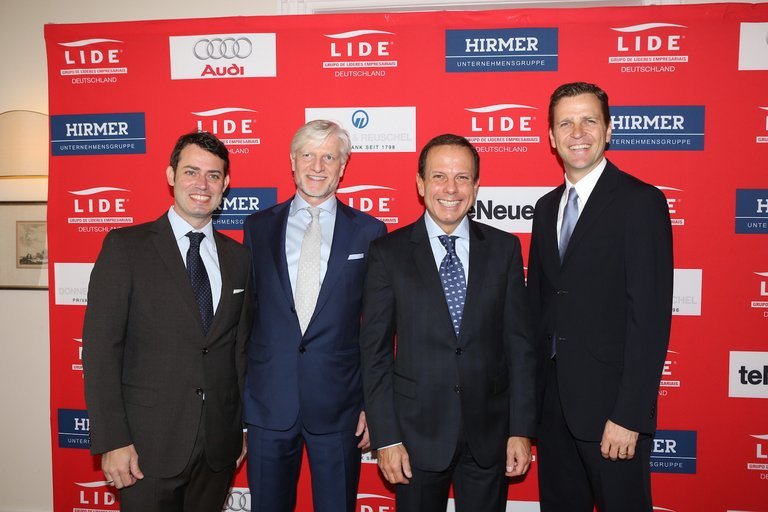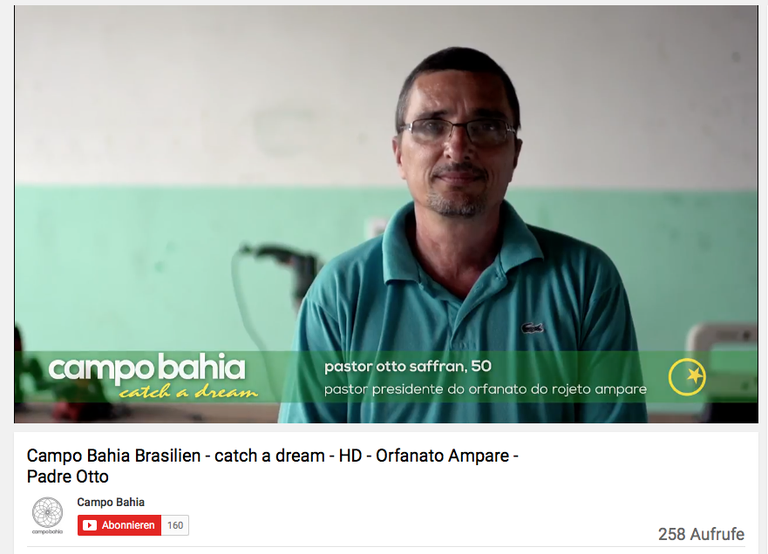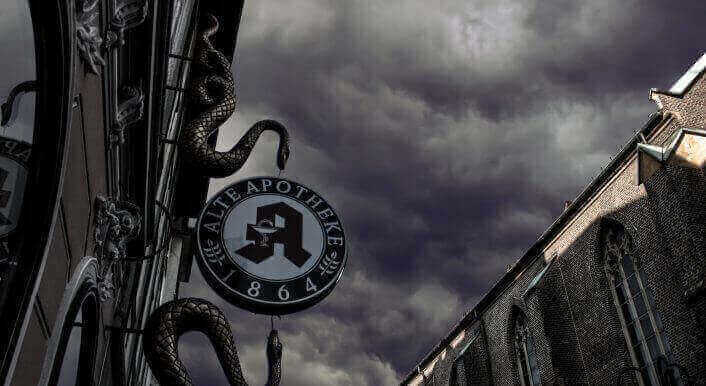Spat over Germany’s ‘best-ever world cup team camp’
World cup winner Germany stayed at the Campo Bahia team camp in Brazil. The hotel was built by German fashion entrepreneur Christian Hirmer. A business man living in Brazil has now sued Hirmer, alleging breach of contract. The complaint for the first time sheds light on the project and how much the German federation has spent for its stay, approximately 65 000 euros per day.

Stefan Maria Gast, a tall man with a full, white beard and hair, is a networker. He has been living in Brazil for over two decades, a market that can be difficult to navigate for foreign investors. Gast once headed the German section of the Brazilian business network LIDE. He helps German businesses doing business in Brazil. Gast makes a living from bringing others together.
In 2013, it was the German football association DFB asking for help. Unhappy with the choices offered by Fifa, the association was looking for a camp to host its team during the world cup. Gast knew that the German business man Christian Hirmer owned a piece of land in the state of Bahia and was building a sea-side hotel resort on the site. Stefan Maria Gast told the DFB about the project. A few months later the deal was done: Hirmer’s project, called Campo Bahia, would serve as the DFB team camp. Former DFB head Wolfgang Niersbach once called it the „best-ever world cup team camp“ in the long cup history of the federation.
Gast and Hirmer verbally agreed on the project before signing a contract in May 2014, just before the start of the world cup, with construction in full swing. The contract details the services that Gast contributed to the project, including obtaining local construction permits, introductions to local politicians, overseeing the progress of construction. The contract awarded Gast a ten percent share in the value created by the stay of the German national team at the resort and the resulting publicity for the project.
A thriller
In the contract, Gast und Hirmer estimated the value of the property at 16.5 million euros. A few months later, they contracted a US real estate broker to sell the property, then aiming at a price of 26 million euros. The contract between Gast and Hirmer put the fee for Gast at one million euros.
But Gast now says he has never seen most of that money and has sued Hirmer at a Munich court, claiming for 800 000 euros. Hirmer rejected the claim when asked by CORRECTIV, saying the it was baseless.

Better times: Christian Hirmer (left), Stefan Maria Gast (second from left) and DFB official Oliver Bierhoff (right).
Stefan Maria Gast
In his statement to the court, Gast is describing a real thriller that he says took place in the run-up to the world cup. He claims that he was pushed out of the project once his local knowledge was no longer needed to complete the Campo Bahia project. A few weeks before the world cup, he received a phone call by the owner of the hotel he stayed at in Porto Seguro, an hour’s drive from the project. Gast was warned that he was in danger, because he knew too much: who had received kick-back payments around the project and who had maintained contacts to local drug dealers.
Gast says he feared for his life. He left Porto Seguro with his wife and asked a police officer he knew to protect him for a few days. Later he would go for his morning jog on the beach only under bodyguard’s protection.
Two versions of events
Starting with that phone call, Gast was no longer admitted to the hotel premises, he says. He felt excluded from the project even though it had been him who had had the idea for the camp in the area. When the world cup started and the German national team arrived in Brazil on June 8th, 2014, Gast felt he had been declared persona non grata.
Christian Hirmer, the entrepreneur from Munich, vehemently rejects this version of events. Hirmer is the third-generation head of the Hirmer family business, which is mostly active in fashion. The company claims its picturesque principal store in the centre of Munich to be the largest men’s fashion store in the world. Christian Hirmer has also built up a real estate arm of the company, for which it is using the Campo Bahia project as publicity.
“The world cup camp, built in record time and best quality, is Hirmer’s contribution to the world cup win of the German national team as well as the sustainable development of the Bahia region“, it says on the company’s website.
Hirmer says in response to a set of questions submitted by CORRECTIV that it was in fact Gast who proposed using his real estate project in Brazil for the DFB world cup camp. But he adds that Gast then displayed some „autocratic manners“ which led to some local project partners reject his presence. That is why he ended his cooperation with Gast, Hirmer says.
Dirty details
“We were approached with the explicit wish and demand to cut ties with Mr. Gast and (the business network) LIDE as soon as possible, because this behaviour of Mr. Gast was no longer going to be tolerated“, the statement says.
Gast in turn rejects these accusations. He says it was him who stepped back during some confrontations in order not to endanger the success of the entire project.
Hirmer also says that Gast did not render any noteworthy services beyond the first introductions. He says that so far he has not received any buy offer for the project that would have exceeded the costs and that the project has not yet reached break-even.
Gast claims that Hirmer excluded him from the project, because Hirmer wanted to prevent him from meeting the delegation of the German federation DFB and tell them dirty details about Hirmer.
No legacy
Campo Bahia was supposed to be more than a simple accommodation. It was supposed to leave behind a social legacy in a country with an enormous gap between the rich and the poor.
Fashion entrepreneur Hirmer said in a press release in December 2013 that his group wanted to not only support the DFB but also the population in the region.
Gast says that Hirmer had promised to support an orphanage run a local organization Ampare. Pater Otto Saffran, the head of Ampare, says he never received any funds from Hirmer after the world cup. He says that his organization only received about 14 000 euros by another German business man involved in the project. Saffran told CORRECTIV he could not have imagined that the promises were not going to be fulfilled. He said that in the end the promises even burdened his organisation as other donors at first were more reluctant to step in, as decent funding from Germany seemed on its way. Saffran says that expanding the orphanage as promised would have cost about 100 000 euros.

Otto Saffran says his orphanage has not received funds that were promised.
Screenshot youtube.com / CampoBahia
That is little money for a football business moving billions and less than the costs of two nights stay for the German footballers at the camp. The agreement between Hirmer and Gast reveals that the DFB association paid 2.5 million euros for its stay, or about 65 000 euros per day. In comparison, the Italian team paid about 800 000 euros for its accommodation in Brazil, according to media reports.
The money paid by the DFB was not transferred directly to Hirmer. At a world cup, every team camp needs to be labeled an official Fifa camp. That is why the DFB paid the money to an agency contracted by Fifa to organize the team accommodations. The agency, Match Hospitality, in turn paid Hirmer. Both the DFB and Match declined to answer questions on the costs of the accommodations. The DFB said it had spent about half a million euros on social projects in Brazil.




